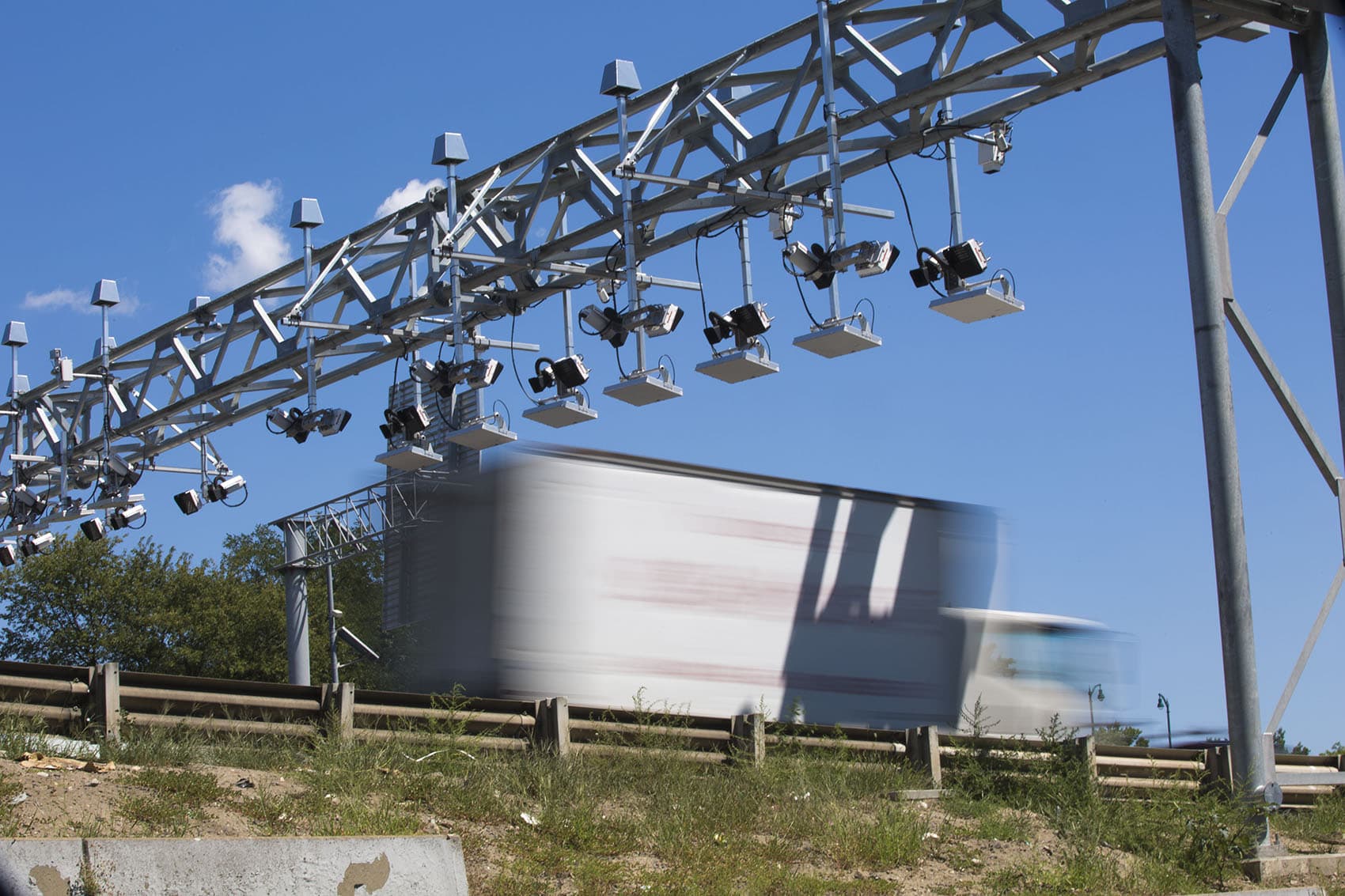Advertisement
All-Electronic Tolling — And New Rates — Begin In Mass. On Oct. 28

Get ready, Massachusetts drivers: All-electronic tolling is coming Oct. 28.
The system will go live at 10 p.m. on that Friday, the Massachusetts Department of Transportation board announced at its meeting Monday.
Toll gantries, which straddle roadways, will replace exit tollbooths, and drivers will be charged when they pass underneath the gantries. The electronic tolling system will cost about $130 million, according to MassDOT. And the agency expects the new system to save about $5 million in annual operating costs.
Under proposed rates unveiled Monday, some commuters would pay more, and some would pay less, with the electronic tolling system. For example, travel from Weston to downtown Boston with an E-ZPass would cost $1.70, instead of the current $2.00. And travel from Newton Corner to Downtown Boston with an E-ZPass would cost $1.50, instead of the current $1.00.
Those with Massachusetts E-ZPass transponders would pay less than drivers with transponders from other states. For example, drivers with Massachusetts transponders would pay $1.50 to drive though the Ted Williams Tunnel in Boston — drivers with out-of-state E-ZPasses would pay $1.75.
And those without transponders at all — who have to be billed payment — would be charged the highest rates. Currently, entering the Mass. Pike from Springfield and driving to South Boston without an E-ZPass costs $5.10. Under the electronic tolling system, that number jumps to $9.00.
Massachusetts E-ZPass transponders are free.
According to MassDOT, an estimated 51.5 percent of commuters would see either a decrease or no change in the cost of their trip. Meanwhile, 19.1 percent of trips would increase by five or ten cents.
The agency plans to hold seven public meetings across the state, starting Sept. 6, to discuss the proposed toll rates. The MassDOT board is scheduled to vote on the final toll rates on Oct. 6.
The move to electronic tolling also means toll workers will be out of jobs. There are currently 510 full- and part-time toll workers. MassDOT said workers will be offered retraining opportunities as well as retirement packages or cash stipends depending on their years of service.
All-electronic tolling has also raised concerns about data privacy. The Boston Globe reported earlier this month that the system has already been capturing data — even before it has started collecting tolls. That data includes when and where people have been traveling, and how fast they're driving.
MassDOT said the data will be kept confidential and is not subject to public record.
"We will not disclose data unless we get a subpoena," John Englander, MBTA and MassDOT general counsel, said at Monday's board meeting.
Englander also said the data will not be used to enforce speeding. But how long the data will be stored — a concern from privacy advocates — is unclear. Englander said MassDOT is still considering time limits.
"We will keep this data for so long as we need it to enforce tolls ... if they're unpaid it may be several years," Englander said, adding that there would be a date after which the information will be "purged from the system."
Another potential privacy concern is the electronic tolling system's "hot list" feature, which provides real-time notifications to law enforcement whenever a specified license plate or transponder goes through a gantry. According to MassDOT, the feature would be used only for emergency circumstances, such as an Amber Alert.
As part of the move to electronic tolling, existing toll booths will be demolished. That work will begin after electronic tolling goes live at the end of October. First, traffic will be diverted to the outer left and right lanes so the center lanes of toll plazas can be demolished and the roadway reconstructed. Then starting by November 22, traffic will be diverted back to the center lanes so the outer parts of the toll plazas can be demolished and that portion of the roadway reconstructed. All of this work is expected to be completed by the end of 2017.
Toll plaza removal and reconstruction, excluding the Sumner Tunnel, will cost about $133 million, according to MassDOT.
The state’s shift to electronic tolling began two years ago with a pilot launch on the Tobin Bridge.
This article was originally published on August 22, 2016.
